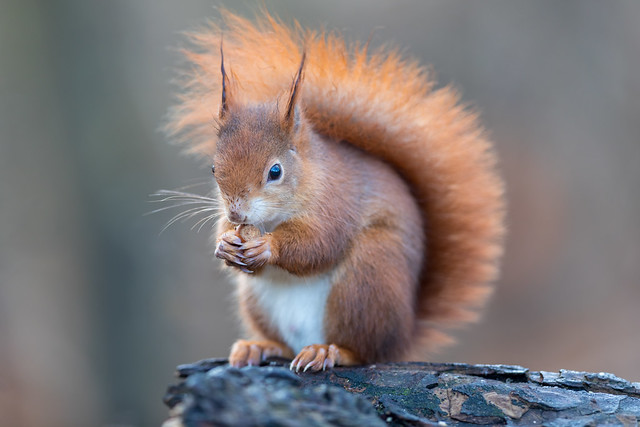Words for who and related things in Celtic languages.

Words marked with a * are reconstructions.
| Proto-Celtic | *kʷei = who |
|---|---|
| Old Irish (Goídelc) | cía, ce, ci, cia = who? what? where? how? although, if cía airet? = how long? cía airm? = where? cía chruth? = how? cía méit? = how many? how much? |
| Middle Irish (Gaoidhealg) | cía, cia, cá = who? what? how? where? cia airm? = what place? where? cia eret? cia airet? = how long? |
| Irish (Gaeilge) | cé? [keː] = who? whom? cén? [ceːnˠ] = what? which? cén áit? = where? at what place? cén chaoi? = how? in what whay? cén dóigh? = how? in what way? cén fáth? = why? for what reason? cén uair? = when? at what time? cér(b)? = who is? cér(bh)? = who was? |
| Scottish Gaelic (Gàidhlig) | cò [koː] = who(m)? where? ge be cò = whoever, whosoever cia? [kʲa] = how? what? which? who? cia mheud? [kʲaˈviəd] = how many? cia ás? [kʲaˈas] = whence? where from? cia minig? = how often? cia fhada? [kʲaˈadə] = how long? cia airson? = why? |
| Manx (Gaelg) | quoi [kwəi] = who? whom? which, whichever, who quoi erbee = who(so)ever, whom(so)ever quoi s’lesh = whose quoi jeu? = which one? |
| Proto-Brythonic | *puɨ = who (?) |
| Old Welsh (Kembraec) | pui = what |
| Middle Welsh (Kymraec) | pwy, puy = who(m), whose, what, which, how pwy … pynac = whichever, whatever |
| Welsh (Cymraeg) | pwy [puːɨ̯ / pʊi̯] = who(m), whose, what, which, how pwy bynnag = who(so)ever, whichever, what(so)ever pwy … bynnag = whichever, whatever pwyma, pwyna = what-d’you-call-him/her |
| Middle Cornish (Cernewec) | pyw, pu = who, whom, which pywpenag, pwy-penag, piwha bennac = whosoever |
| Cornish (Kernewek) | piw [piˑʊ] = who piw penag / pynag [piˑʊ] = whoever |
| Old Breton (Brethonoc) | piu = who |
| Middle Breton (Brezonec) | piu = who |
| Breton (Brezhoneg) | piv [ˈpiw] = who piv bennak = whoever piv din-me = thing, thingamajig, whatstheirface (a person whose name is unknown) |
Etymology: from Proto-Indo-European *kʷís (who, what, which, that) [source]. Words from the same root include how, whether and status quo in English, hoe (how) in Dutch, hver (every, each, everyone) in Danish, qui (who, whom, which, that) in French, chi (who, whom, whoever) in Italian, com (with, against, alongside, together) in Portuguese, and który (what, which, that, who) in Polish [source].
Sources: Wiktionary, Etymological Dictionary Of Proto Celtic, In Dúil Bélrai English – Old Irish glossary, eDIL – Electronic Dictionary of the Irish Language, Teanglann.ie, Am Faclair Beag, An etymological dictionary of the Gaelic language, Fockleyreen: Manx – English Dictionary, Online Manx Dictionary, Gaelg Corpus, Geiriadur Prifysgol Cymru, Lexicon cornu-britannicum : a dictionary of the ancient Celtic language of Cornwall, Gerlyver Kernewek, Devri : Le dictionaire diachronique du breton, Geriafurch, TermOfis









